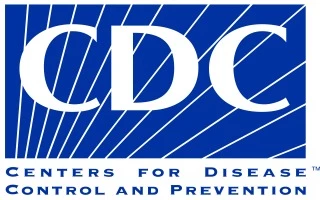Frequently Asked Questions
The ACSM Data hub is a centralized data storage system
designed to collect and manage real-time ACSM data for
Routine Immunization (RI), COVID-19, and new vaccines' such
as HPV. Its purpose is to serve as a robust repository for
ACSM data to facilitate informed decision-making for demand
generation.
The data hub will facilitate decision making for demand
generation efforts. Its functionality makes it useful to
government agencies, health care professionals, development
partners, donor agencies, researchers, community-based
organizations and anyone seeking demand generation data for
immunization programs.
BeSD Data, or Behavior and Social Drivers Data, includes
information on community behaviors, socio-economic factors,
and cultural influences affecting vaccination. This data
helps tailor communication and social mobilization efforts
to specific populations and contexts, increasing the
effectiveness of vaccination initiatives
The dashboard integrates data from diverse sources, it
covers ACSM program data, social listening findings and
client perception data.
Program data is from Primary Health Care agencies at the
national, state and LGA level, healthcare facilities, and
partners implementing demand generation activities.
Social listening data is from social media platforms such as
Twitter, Facebook, blogs etc.
Client perception is gotten from BeSD surveys conducted
through exit interviews, community polls, SMS and IVR.
The Social Listening component tracks and analyzes
conversations on social media, news, and online discussions
related to vaccination. It provides insights into public
sentiments, concerns, and real time emerging trends in
communication. These insights help in tailoring
communication strategies to address vaccine hesitancy,
misinformation, and public sentiment.
Access to the dashboard can typically be obtained by
requesting access through the dashboard administrator
Data access is usually restricted to authorized users,
ensuring that sensitive information is protected and used
responsibly.
No, an account will be created for you by an administrator.
Contact the admin on LIPt@sydani.org to be granted access to
the dashboard
The repository contains data related to routine
immunization, COVID-19, community behaviors, social
determinants, and social media trends.
Data is sourced from various stakeholders, including
government health departments, partners implementing demand
generation activities, healthcare facilities, community
surveys, and social media platforms.
Data in the repository is updated in real-time or at regular
intervals, depending on the source. Frequent updates ensure
the availability of the most current information.
Organizations or individuals can contribute data and
insights through a designated data submission process.
Collaborative partnerships are encouraged to enhance the
data sources.
The data facilitates evidence-based decision-making,
targeted communication strategies, improved resource
allocation, and better vaccination program outcomes,
ultimately contributing to public health outcomes especially
for immunization.
The ACSM Data Hub employs robust security measures to
safeguard sensitive information. These measures include
encryption of data in transit and at rest, role-based access
control, regular security audits, and compliance with
relevant data protection regulations. Access to the data is
restricted to authorized users, and data anonymization and
privacy protocols are enforced to protect individuals'
personal information.
Yes, the data is anonymized, and data privacy is maintained
through rigorous compliance with data protection regulations
and ethical standards.
Users can provide feedback or report issues by using the
designated "contact details" feature within the ACSM Data
Repository platform. This feature allows users to submit
their comments, questions, or concerns directly.
Users can access documentation, tutorials, and a dedicated
helpdesk for technical support and guidance on using the
dashboard effectively.
Training materials and workshops may be provided
periodically to help users make the most of the dashboard's
features and data for decision making.
Yes, the dashboard is subject to continuous improvement and
may include new features, data sources, and functionalities
to meet evolving needs.
The goal is to integrate the hub into the DHIS2, the
approved repository for administrative data.

